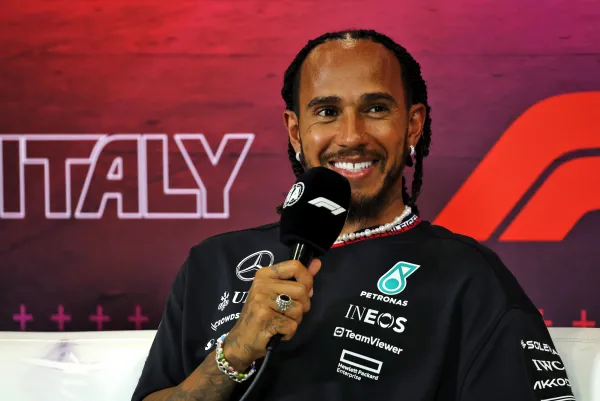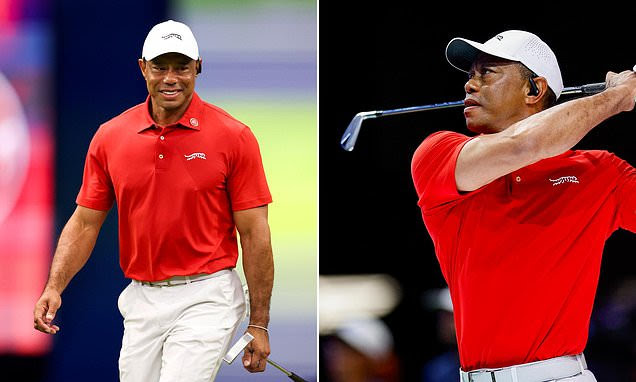NOT A GOOD LUKE ‘The worst thing you can say as a referee’ – ‘Voice of Darts’ Russ Bray agrees with Luke Littler on crowd trouble full details below
NOT A GOOD LUKE ‘The worst thing you can say as a referee’ – ‘Voice of Darts’ Russ Bray agrees with Luke Littler on crowd trouble full details below The world of darts, a sport often celebrated for its vibrant atmosphere and passionate fans, has recently found itself embroiled in a controversy surrounding crowd behavior….
NOT A GOOD LUKE ‘The worst thing you can say as a referee’ – ‘Voice of Darts’ Russ Bray agrees with Luke Littler on crowd trouble full details below
The world of darts, a sport often celebrated for its vibrant atmosphere and passionate fans, has recently found itself embroiled in a controversy surrounding crowd behavior. This debate was ignited by incidents during a high-profile match featuring rising star Luke Littler, and has since drawn in prominent figures like renowned commentator Russ Bray, raising serious questions about the line between enthusiastic support and disruptive conduct.
Littler, known for his composed demeanor and exceptional talent, found himself facing not only his opponent but also a vocal segment of the audience during a crucial match. The issue at hand was the persistent whistling and jeering that disrupted play, particularly when players were attempting crucial throws. This behavior, while not entirely new to the sport, reached a crescendo that left Littler visibly frustrated.
“There were a few in particular that were doing it when [my opponent] was throwing,” Littler commented after the match, highlighting the targeted nature of the disruption. He further explained how the referee’s attempts to quell the noise inadvertently exacerbated the situation. “Kirk [the referee] told them to be quiet and it got even worse, and then I missed doubles and [my opponent] breaks at 5-4. I’m just like, ‘Kirk, you’ve made it worse for me there, I’m 5-4 down.’”
Littler’s experience is not an isolated incident. Other players have also voiced concerns about similar treatment, creating an undercurrent of unease within the professional darts community. The question of how to manage crowd behavior has become a hot topic, with opinions divided on the appropriate course of action. Some argue for stricter enforcement of existing rules, while others suggest a need for more nuanced guidelines that balance the passion of the crowd with the need for fair play.
Enter Russ Bray, the iconic “Voice of Darts,” whose booming introductions and enthusiastic commentary have become synonymous with the sport. Bray, a respected figure both on and off the stage, weighed in on the controversy, lending his considerable voice to Littler’s concerns. He agreed that the whistling and jeering had crossed a line, becoming detrimental to the players’ ability to perform at their best.
“The worst thing you can say as a referee,” Bray stated, emphasizing the delicate balance officials must strike between maintaining order and avoiding further disruption. He argued that heavy-handed intervention can sometimes backfire, fueling the unruly behavior and further impacting the match. Bray’s perspective highlights the complexity of the issue, where a simple solution remains elusive.
The debate extends beyond individual matches and touches upon the broader image of the sport. Darts has worked hard to shed its past image and cultivate a family-friendly atmosphere. Incidents of disruptive crowd behavior threaten to undermine these efforts, potentially deterring new fans and sponsors. The future of the sport may well depend on how effectively it addresses this challenge.
The Professional Darts Corporation (PDC), the governing body of the sport, has acknowledged the issue and released statements emphasizing its commitment to maintaining a positive atmosphere at events. They have indicated a willingness to work with venues to implement stricter measures to curb disruptive behavior. However, the specifics of these measures remain unclear, and it remains to be seen whether they will be sufficient to address the root of the problem.
One potential solution lies in educating fans about the impact of their behavior. Many spectators may not realize that their actions, even if intended as harmless fun, can significantly affect the players’ concentration and performance. A campaign to raise awareness could help foster a greater sense of respect and understanding within the crowd.
Another approach could involve empowering referees to take a more proactive role in managing crowd behavior. This might include giving them the authority to issue warnings or even eject disruptive individuals from the venue. However, this approach must be implemented carefully to avoid accusations of heavy-handedness or bias.
Ultimately, the responsibility for maintaining a positive atmosphere rests not only with the officials and organizers but also with the fans themselves. The vast majority of darts enthusiasts are passionate and respectful, and their collective voice can play a crucial role in discouraging disruptive behavior. By creating a culture of self-regulation, where fans actively call out inappropriate conduct, the darts community can ensure that the focus remains on the incredible skill and sportsmanship displayed by the players.
The controversy surrounding crowd behavior in darts serves as a reminder that even the most beloved sports are not immune to challenges. As the sport continues to grow in popularity, it must confront these issues head-on to preserve its integrity and ensure a welcoming environment for both players and fans. The voices of Littler and Bray, along with the collective wisdom of the darts community, will be essential in shaping the future of the sport and ensuring that it remains a celebration of skill, passion, and respect.


